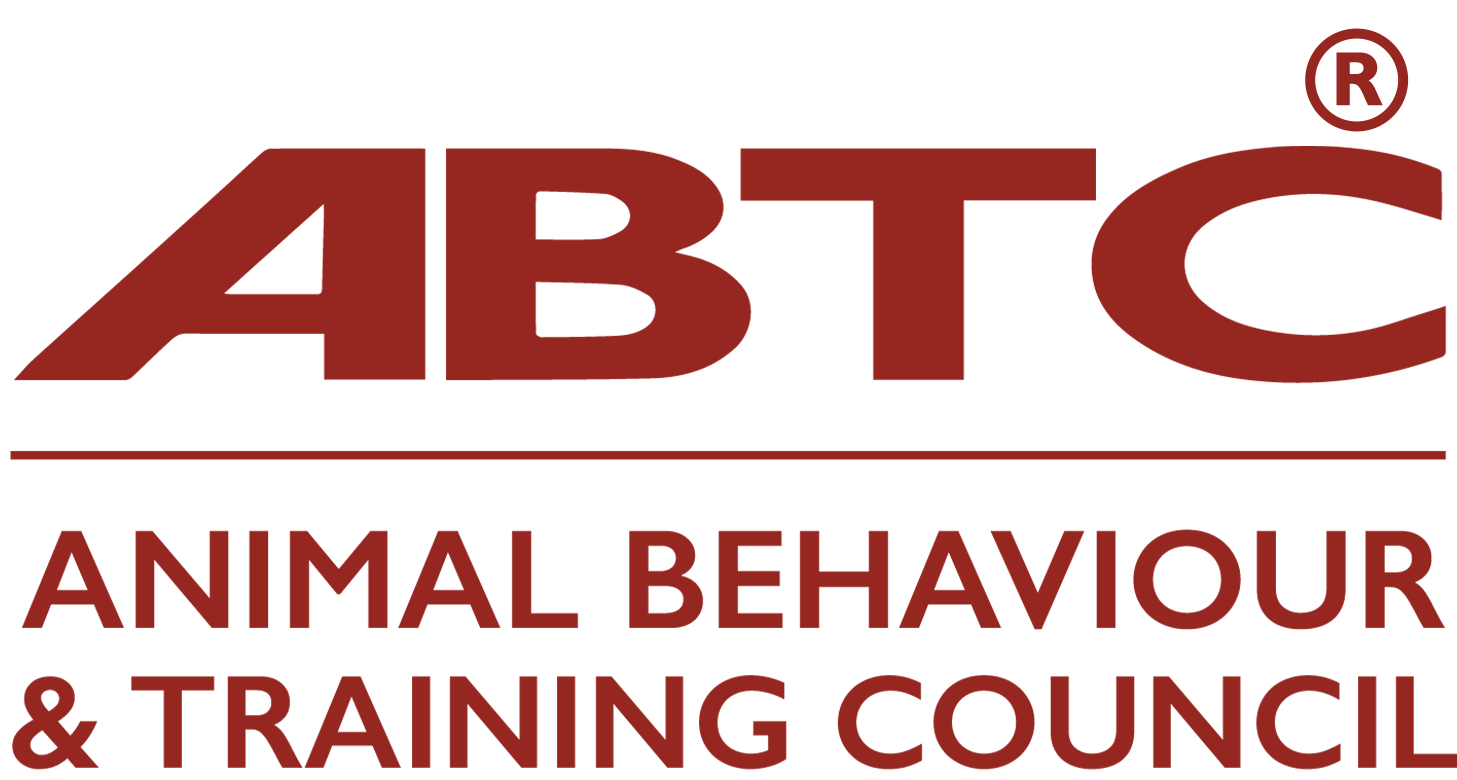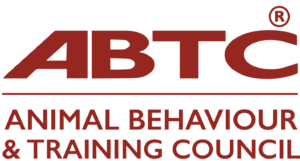Become an Animal Trainer
- Knowledge & Understanding which shows what you need to have covered through courses, qualifications, CPD and experience to be sure that you know how to plan and manage the training of animals in a humane way, with animal welfare at the heart of your approach. You could get this knowledge from a course and training opportunities.
- Performance Criteria which set out what you must be able to do as an Animal Trainer. Any one of the listed AT Practitioner Organisations can assess you to check that you have the skills and experience to train animals humanely and competently.
- ABTC Recognised courses for Animal Trainer (AT)
- ABTC Standard for Animal Trainer (AT)
Become an Animal Training Instructor
- Knowledge & Understanding which shows what you need to have covered through courses, qualifications, CPD and experience to be sure that you know how to plan and manage the training of animals in a humane way, with animal welfare at the heart of your approach. It also covers your interactions with owners/handlers and your abilities to teach owners/handlers in a one-to-one or a group situation. You could get this knowledge from a wide range of courses and training opportunities. The best place to start looking is at the courses offered by some of the Practitioner Organisations (see below) and the ABTC recognised course.
- Performance Criteria which set out what you must be able to do as an Animal Training Instructor. Any one of the listed ATI Practitioner Organisations can assess you to check that you have the skills and experience to train animals humanely and competently and that you can communicate with owners/handlers effectively. The ATI Practitioner Organisations can be found below.
- ABTC Recognised courses for Animal Training Instructor (ATI)
- ABTC standard for Animal Training Instructutor (ATI)
Become an Animal Behaviour Technician
- Knowledge & Understanding which shows what you need to have covered through courses, qualifications, CPD and experience to be sure that you know how to provide prophylactic behavioural advice to owners/handlers/keepers, and to assess animal behaviour to devise behaviour modification and/or environmental modification plans to improve animal welfare. You will also need to understand how to plan and manage the training of animals in a humane way, with animal welfare at the heart of your approach. You could get this knowledge from a wide range of courses, qualifications and training opportunities.
- Performance Criteria which set out what you must be able to do as an Animal Behaviour Technician. Any one of the listed Animal Behaviour Technician Practitioner Organisations can assess you to check that you have the skills and experience to how to evaluate, prevent or address inappropriate or problematic behaviours within individual animals, through the development of suitable environments and training regimes. These may be for training rehabilitation or prevention purposes, when caring for the animal in kennels or rescue. The role is very suitable for those in the care sector or veterinary nursing context. The ABT Practitioner Organisations can be found below.
- ABTC Recognised courses for Animal Behaviour Technician (ABT)
- ABTC standard for Animal Behaviour Technician (ABT)
Become a Clinical Animal Behaviourist
- Knowledge & Understanding which shows what you need to have covered through courses, qualifications, CPD and experience to be sure that you know how to effectively modify the behaviour of animals that are demonstrating all types of undesirable, inappropriate, problematic or dangerous behaviour, including those with a potential link to pathologies that require diagnosis in collaboration with a veterinary surgeon. You will also need to understand how to plan and manage the training of animals in a humane way, with animal welfare at the heart of your approach. You could get this knowledge from a wide range of courses, qualifications and training opportunities. The best place to start looking is at the courses recognised by the ABTC here.
- Performance Criteria which set out what you must be able to do as a Clinical Animal Behaviourist. Any one of the listed Clinical Animal Behaviourist Practitioner (or Assessor) Organisations can assess you to check that you have the skills and experience to take responsibility for planning and managing humane approaches to address inappropriate behaviours, and that you have an extensive understanding of clinical animal behaviour and the relevant scientific/clinical literature on which this is based. The CAB Practitioner (and Assessor) Organisations can be found below.
- ABTC Recognised courses for Clinical Animal Behaviourist (CAB)
- ABTC standard for Clinical Animal Behaviourist (CAB)
Practitioner Organisations
These Practitioner Organisations register their members on the ABTC registers indicated:
You can find links to all the Practitioner Organisations here
Animal Trainer:
British and Irish Association of Zoos and Aquariums (BIAZA)
National Institute for Canine Ethics (NICE)
Animal Training Instructor:
Association of Pet Dog Trainers (APDT)
Gundog Trainers Academy
Karen Pryor Academy
Natural Animal Centre
National Institute for Canine Ethics (NICE)
Professional Association of Canine Trainers (PACT)
Puppy School
The Canine Behaviour and Training Society (TCBTS)
Animal Behaviour Technician:
Association of Pet Behaviour Counsellors (APBC)
National Institute for Canine Ethics (NICE)
The Canine Behaviour and Training Society (TCBTS)
Clinical Animal Behaviourist:
Association of Pet Behaviour Counsellors (APBC)
Fellowship of Animal Behaviour Clinicians (FABC)
The Canine Behaviour and Training Society (TCBTS)
You can find links to all the Practitioner Organisations here

